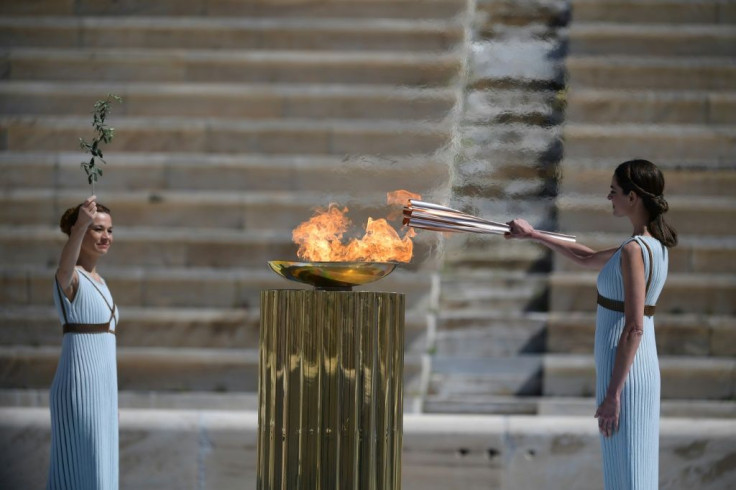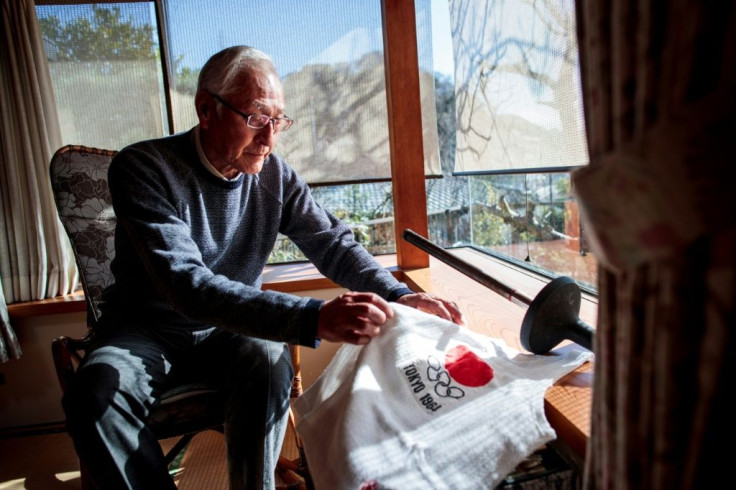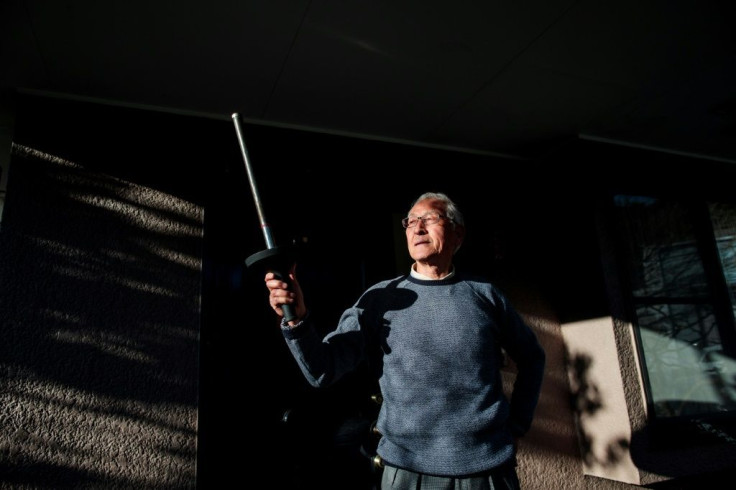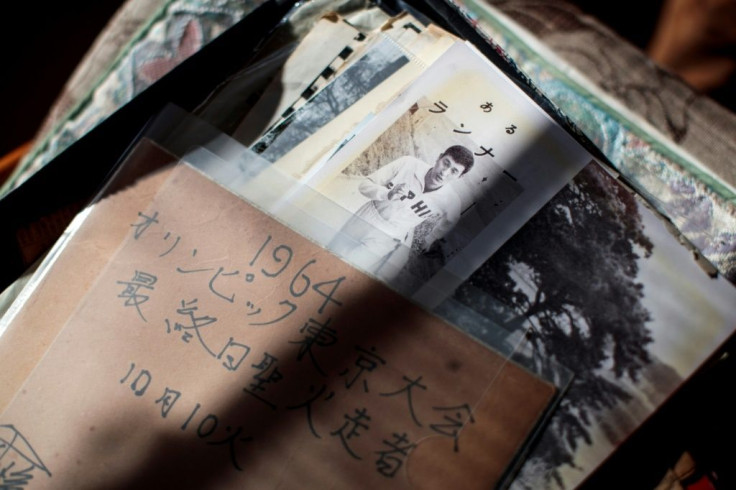1964 Olympic Torchbearer Frets About Virus-hit Olympic Relay

Even though it was 56 years ago, Kazuo Goto still vividly remembers his pride as he carried the Olympic flame on the last day of the torch relay when Tokyo hosted the Games in 1964.
But with the coronavirus threatening the torch relay and even the Olympic Games themselves, the 73-year-old believes the 2020 version should be scrapped, as torchbearers need to be able to carry the flame with a "clear conscience."
"We are not in a position where we can go ahead with the torch relay as planned," Goto, a former insurance broker, told AFP in an interview at his house in Yokosuka, southwest of Tokyo.
The white-haired former torchbearer recalled that he was "thrilled" to be part of the 1964 Olympic movement, which symbolised Japan's rise from the ashes of World War II to an economic and technological powerhouse.
And while treasuring his "emotional" memories of the event, he said he was now puzzled with organisers still going ahead with the 2020 Olympic torch relay while the outbreak of the new coronavirus has thrown the entire Tokyo Games into doubt.
Plugging ahead regardless seems to be "egoism" on the part of organisers, he charged.

Goto questioned what would happen if the torch relay begins but the Olympics are postponed in the middle of the event -- a fairly likely scenario with the International Olympic Committee giving itself four weeks to make a decision.
"Do they let them run and then they say they can't hold the Olympics?" he asked.
"I ran with my head high and chest out under the sunshine, representing my country. That's the significance," Goto said, cradling the torch he carried in 1964.

"It's best for torchbearers to run with a crystal-clear conscience."

One prominent torchbearer, US-based Japanese football star Nahomi Kawasumi, has already pulled out of the relay, saying she did not want to risk infecting anyone given the number of cases is much higher in the US than in Japan.
The nationwide torch relay is due to begin on Thursday, starting from the J-Village sports complex in Fukushima that was used as a base for workers during the 2011 earthquake, tsunami and nuclear disaster.
But the coronavirus has already played havoc with the relay, forcing organisers to scale back celebrations and warn fans not to congregate in crowds along the route.
In what organisers described as a "heartbreaking" decision, they kept away some 200 children from welcoming the torch off the plane from Greece.
Goto said he feels sorry for the 10,000 bearers of the 2020 flame, whose big moment may be dampened by sparse crowds and who may run with mixed feelings.
"They are supposed to run with well-wishers. The torch relay is an integral part of the Olympics," he said.
The theme of the torch relay is "hope lights our way" and former Olympic judo champion Saori Yoshida, who lit a ceremonial cauldron with the flame when it arrived from Greece, said she wanted it to brighten people's lives in the current dark times.
"Although it's a tough time, I hope we can give hope and cheer to a lot of people with the Olympic flame relay," she said.
Isamu Miyagi, who was the first torchbearer at the 1964 Olympics and plans to run again this year, said he still believes "it's worth running" with the flame.
"I'm worried but it is beyond our control as to whether we can go ahead with the relay," said Miyagi, scheduled to run on May 3 in the southern island of Okinawa.
"I still hope it happens because the Olympic flame is the flame to light up the spirits of people fighting hardship," the 77-year-old told AFP in a phone interview.
"That's why we need to do the flame relay now," he said.
"I will keep preparing to carry the flame no matter what."
© Copyright AFP {{Year}}. All rights reserved.





















